The three major operators are making efforts, 5G messaging has begun to be commercialized, and WeChat and QQ are facing great challenges
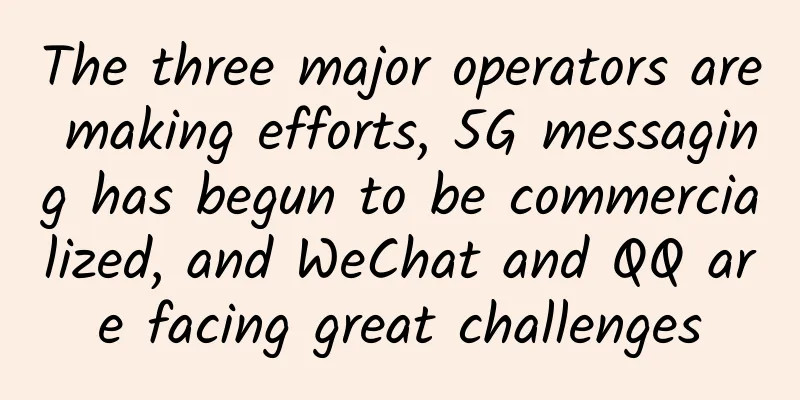
|
WeChat and QQ have become the strongest kings in the current domestic social field. Although many technology companies want to enter the social field, after years of development, the results are minimal and unsatisfactory. Recently, there have been new developments in the 5G messages jointly developed by the three major operators, which will pose a huge challenge to the leading position of WeChat and QQ in the social field. 5G messaging starts commercial useChina Unicom officially announced on November 8 that it would launch 5G messaging commercial services nationwide, while also using "free" as a weapon to enter the market.
China Unicom has launched a nationwide trial commercial use of 5G messages and launched a "5G Message Experience Recruitment Campaign", providing free 5G message experience packages for corporate customers and individual users, supporting the transmission of basic information such as text, pictures, videos, and locations. Friendly experience users will enjoy a richer, more convenient, intelligent, and secure new 5G message experience. Since the rise of a number of Internet products such as WeChat and QQ, the SMS function of the three major operators has become useless and has basically become a tool for receiving various verification codes. The three major operators have also lost an important "money-making" business. After all, more than 10 years ago, people still chatted through SMS, and each SMS cost 10 cents, and could only send text. This created a lot of profits for the three major operators. Today, the three major operators have transformed and upgraded traditional text messages and jointly launched 5G messages to break the monopoly of WeChat and QQ in the social field and re-enter the market with a new attitude. Will the launch of 5G messaging really threaten the dominant position of WeChat and QQ in the social field? I think it’s hard to say. Will 5G messaging threaten WeChat and QQ?First of all, today's 5G messages are very different from the past. In addition to being able to send text content, they also support multimedia information such as pictures, videos, and locations. They also have functions such as ticket purchase, shopping, information, and search, involving logistics, travel, government affairs, social networking, and other fields. More importantly, when using 5G messages, you don't need to download any APP separately. This is too streamlined for WeChat and QQ, which often take up several GB of storage space. In addition, 5G messaging has also made major adjustments in terms of charges. The charging model has also changed from the previous SMS era of charging by message to charging by traffic. It is expected that the price will be more favorable than the current SMS and MMS, which is a very significant benefit for the dividends of the digital age. In addition, the number of users of the three major operators is not less than that of WeChat and QQ, which is their inherent advantage. As long as 5G messaging is powerful, easy to use, and reasonably priced, it is possible to replace WeChat and QQ. After all, the current WeChat and QQ are really getting worse. The ambitions of the three major operators are more than thatAfter the launch of 5G messages, the user activity of WeChat and QQ will be affected first, but the ambitions of the three major operators go far beyond that. Smartphones are now closely related to our daily lives. Eating, dressing, living, traveling, playing, shopping, and studying all have corresponding apps to support them. Therefore, everyone has a large number of apps in their phones, ranging from a dozen to hundreds, and it is normal for a phone to have 40-50 apps. If things go on like this, the phone will become increasingly bloated. In this case, if there is an app that can include most of the functions provided by the above-mentioned APPs, our mobile phones will become cleaner and lighter. Therefore, the emergence of 5G messages will make it possible. From the current perspective, the biggest features of 5G messages are two aspects. First, it can be used without downloading, installation-free, strong reach, authenticity, and is a system-level function. Second, it has a variety of integrated functions that can meet the needs of various scenarios in daily life. For example, it includes the instant messaging function of WeChat and QQ, the office function of DingTalk and Feishu, the positioning and taxi-hailing functions of map software and taxi-hailing software, and the shopping function of e-commerce software. For example, during the conversation with 12306, you can quickly book, pay, change tickets, etc. by sending voice, text or clicking keywords. Generally speaking, 5G messages are a kind of rich media messages based on SMS portals, which are convenient, fast and all-encompassing. However, after 5G messages are put into commercial use on a large scale, will there be a large amount of spam content? This still needs to be intercepted and prevented through further technical means. |
<<: Beyond 5G: The next generation of wireless technology is coming
Recommend
Five IoT product design concepts to attract and retain the younger generation of consumers
The post-2000s are an emerging generation of cons...
China Mobile lost 8 million users. Why are users disappointed with China Mobile?
The introduction of the number portability policy...
Gartner lamented that there has never been such a volatile market in 25 years
According to Gartner's forecast, global IT sp...
How to view the doomed failure of 5G network from a metaphysical perspective
It's time, fate, luck, and not 5G... Some thi...
DogYun New Year Promotion: 30% off on Elastic Cloud/20% off on Classic Cloud, starting from 16 yuan/month, top up 100 yuan and get 10 yuan free
The Lunar New Year is here, and DogYun has launch...
Operators should not set traps for unlimited data packages
Operators generously offer "unlimited" ...
Reality or illusion? Challenges of NFV adoption in the enterprise
To further strengthen the use case for enterprise...
Tencent releases StarNet 2.0, increasing AI large model training efficiency by 20%
With the hot and continuous iteration of large mo...
HostVDS: $0.99/month - 1GB/10GB/50M-200M bandwidth/Russia & Dallas data centers
HostVDS has been established for some time. The m...
Three steps to take before deploying SD-WAN
As enterprises develop their network strategies a...
How much do you know about OSI and TCP/IP? Let us take you into the world of communications
When I first came into contact with computers, I ...
Riverbed Launches Two New Visibility Solutions to Enable 360-degree View of Enterprise IT
[51CTO.com original article] Riverbed recently an...
This move can save tens of billions of yuan in 5G construction!
Recently, two major European operators, Vodafone ...
Three ways edge computing expands IoT networks
With 6.4 billion devices connected to the interne...
Insider information revealed! What magical operations did the operators' employees use to boost their performance at the end of the year?
According to the data of "Economic Operation...
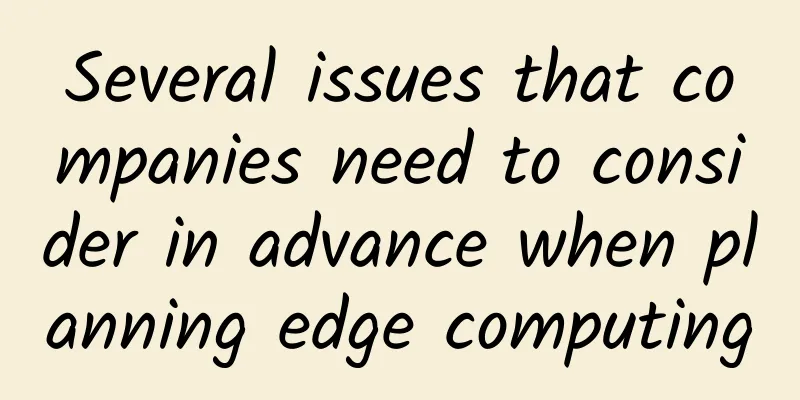

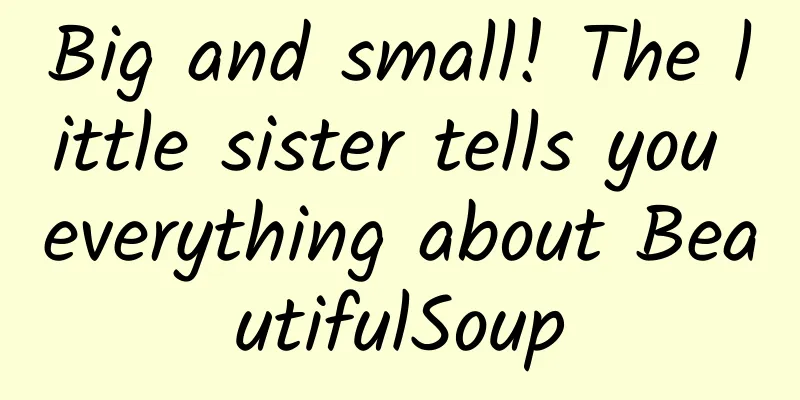
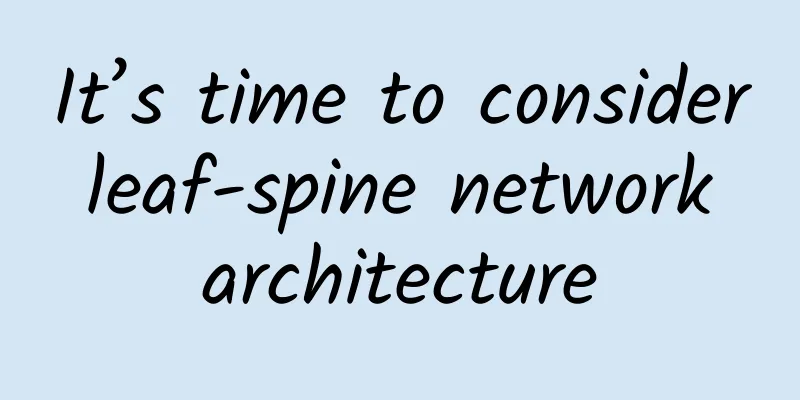
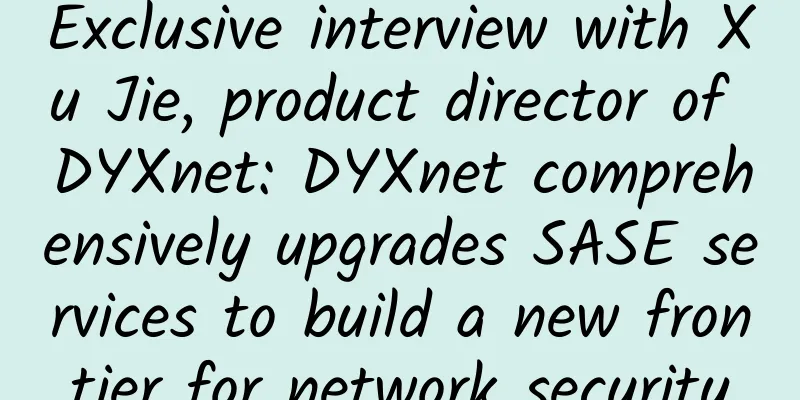
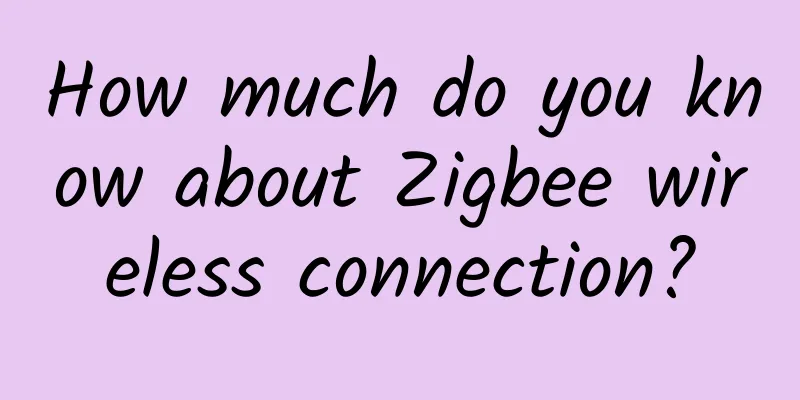
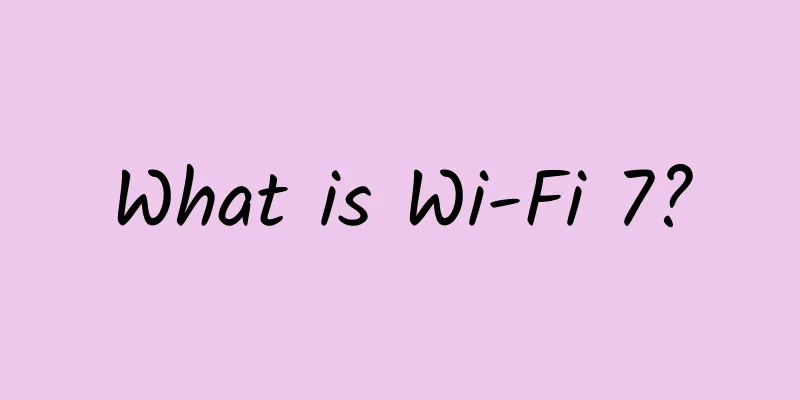

![[Black Friday] RackNerd: Multi-datacenter VPS annual payment starts from $10.88](/upload/images/67cac24716789.webp)
